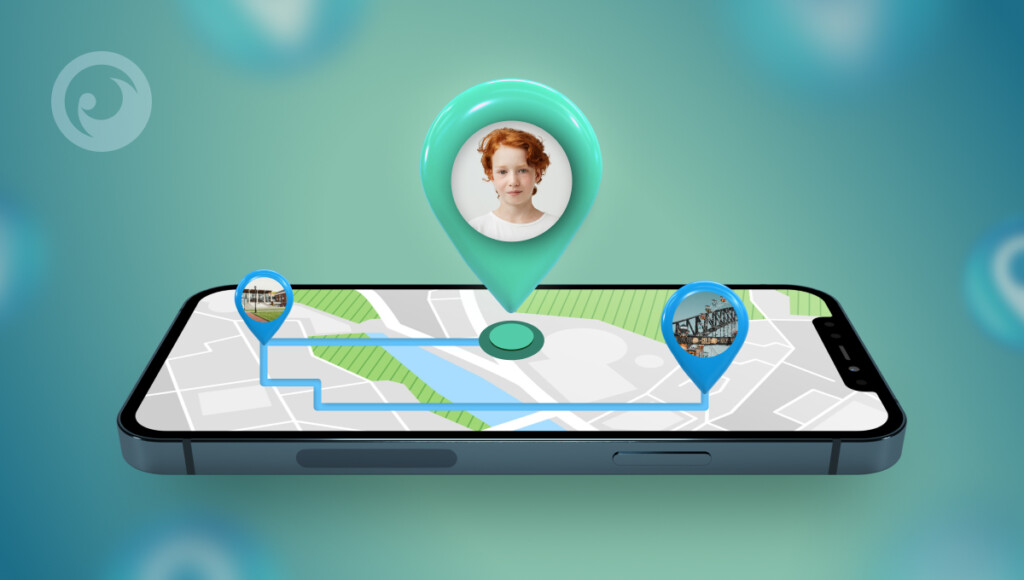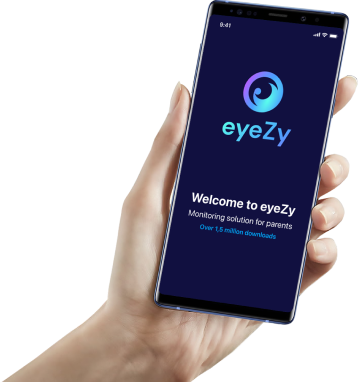

Modern times call for modern questions — and here’s a big one. Should parents track their children? Your parents didn’t need to make this decision when you were a kid. For one, they trusted you. And even if they didn’t, they had no way of tracking you. But times have changed, and we now have some amazing technology at our disposal.
If you want to know where your kid is at any given moment, you have the power to find out. And you can do so without sending a text or making a call. It’s all thanks to tracking apps that follow your child around wherever they go.
But why should parents track their child? These stats might help you make a decision:
- Gen Z actually wants their parents to track them according to a recent report
- More than 53% of parents agree that using a location tracker is necessary
- There are multiple options for tracking your kids, including AirTags and apps
In this article, we’ll explore the main reasons, plus run through some pros and cons of doing so.
Table Of Contents
First, Let’s Clear the Air

If you’ve looked for reasons why parents should track their child, you’ve likely come across some information that says tracking someone violates the law. That’s a big misconception.
If you’re a parent, you have every right to know where your kids are — and you can use an app to find out. In fact, you don’t even have to tell them about it (assuming they’re under 18 years old and living at home).
Reasons Why Parents Should Track Their Child
1. You Need to Get a Hold of Them in an Emergency
One of the biggest reasons why parents should track their child is one we hope you’ll never have to deal with — a big emergency. Maybe it’s 2am and your teenager was supposed to be home at 11pm.
You need to know where they are and that they’re safe. Or maybe there’s a family emergency at home and you need to update your child on the situation, but they’re not home and you can’t reach them. A tracking app can help you find them. Want to locate your kid quickly and easily? Watch our video guide.
2. They’re Traveling Somewhere New
From exploring new neighborhoods around town to backpacking halfway around the world, kids love their freedom. That’s why many parents track their teenager’s location.
It’s a great way to bring a little peace of mind to a new and uncomfortable situation. And many teenagers who are traveling to faraway destinations appreciate that their parents have access to their location on demand (assuming they’re not using an app like Eyezy that works in stealth mode).
3. You Want to Build Trust
It seems strange, right? Parents tracking their child because they want to build trust is counterproductive. If you trust them, why would you track them? But the truth is trust is usually earned, not automatically given.
If your child has a history of going against your wishes but you still want to give them some freedom, checking in on their location every now and then might be the baby steps you need to get to that full level of trust.

4. Online Safety from Predators
Children can unknowingly interact with online predators through social media or messaging apps. Tracking their phone helps parents monitor conversations and detect potential dangers.
With cybercriminals using sophisticated tactics, having access to their child’s online interactions ensures early intervention if anything suspicious arises. Parental control apps can alert parents about inappropriate chats, helping keep their children safe from online exploitation.
5. Monitoring Screen Time and Digital Well-Being
Excessive screen time can lead to poor sleep, decreased academic performance, and mental health issues. Tracking their phone allows parents to set healthy limits, ensuring children balance their online and offline activities.
By understanding how much time their child spends on apps or social media, parents can promote healthier habits, encouraging outdoor activities, hobbies, and face-to-face interactions instead of excessive screen use.
6. Preventing Risky Social Media Behavior
Children often share personal information online without understanding the risks. They may post sensitive details, share their location, or engage in dangerous online challenges.
Tracking their phone helps parents monitor social media activity, ensuring their child isn’t sharing anything that could put them at risk. Teaching children about responsible digital behavior while keeping an eye on their activity fosters a safer online experience.
7. Preventing Interaction with Strangers
Children may unknowingly interact with strangers through gaming apps, messaging platforms, or social networks. Some predators disguise themselves as peers to gain trust.
By tracking their phone, parents can see who their child is communicating with, ensuring they are not engaging with potentially dangerous individuals. Monitoring calls, texts, and friend requests helps reduce the risk of harmful encounters.
8. Ensuring Academic Productivity
Many students get distracted by social media, games, and YouTube during study hours, affecting their academic performance. Tracking their phone helps parents see if they are using their device productively.
By monitoring app usage, parents can block distractions during school hours, ensuring their child focuses on homework and educational resources rather than engaging in unproductive online activities.
9. Protecting Against Cyberbullying
Cyberbullying is a growing concern, with children facing harassment via texts, social media, and online forums. Tracking their phone allows parents to identify harmful messages and intervene before emotional damage occurs.
Since many kids hesitate to share their struggles, monitoring their activity provides insights into potential bullying. This approach ensures children receive the support and guidance they need to handle online conflicts responsibly.
10. Teaching Responsible Digital Habits
Tracking a child’s phone isn’t just about surveillance—it’s about fostering responsible technology use. By monitoring their activity, parents can guide them on privacy, cybersecurity, and digital etiquette.
Encouraging open discussions on why tracking is necessary helps build trust. When used correctly, parental tracking promotes a healthy, secure, and balanced digital lifestyle for children as they grow.
Pros and Cons of Tracking Your Children
Pros
- You’ll always know where they are
- It can help them feel safe (assuming they know you’re tracking them)
- You’ll sleep better at night
Cons
- Teens might think you’re spying on them
- Some poorly designed apps might give inaccurate locations
- If they know you’re tracking them, they might rebel
The Best App for Parents Tracking Their Child is…
It’s Eyezy. The monitoring app includes a tool called Pinpoint, which shows your child’s current location, plus lets you see where they’ve been. And with Magic Alerts, you can set safe and danger zones, and find out when they enter or leave those zones.
Location tracking is just one of many tools included in Eyezy to help you keep tabs on your kids and keep them safe. Take the demo for a spin and explore some of the other tools, like Social Spotlight (which lets you read their private social media chats).



